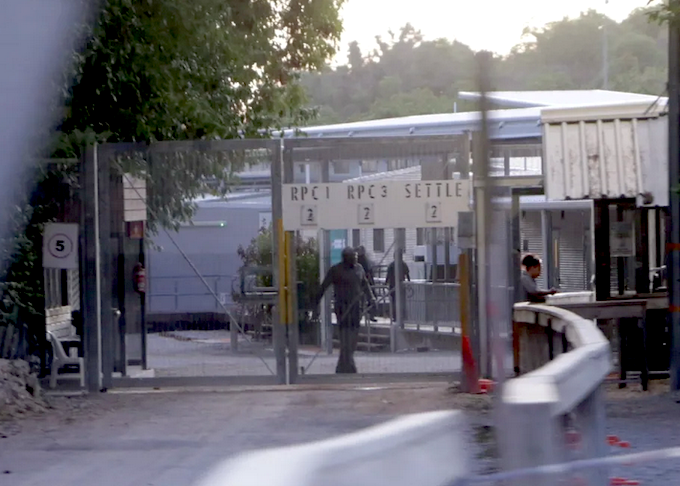
By Margot Staunton, RNZ Pacific journalist
Refugee advocates and academics are weighing in on Australia’s latest move on the Pacific geopolitical chessboard.
Canberra is ploughing A$100 million over the next five years into Nauru, a remote 21 sq km atoll with a population of just over 12,000.
It is also the location of controversial offshore detention facilities, central to Australia’s “stop the boats” immigration policy.
Political commentators see the Nauru-Australia Treaty signed this week by Australian Prime Minister Anthony Albanese and Nauru’s President David Adeang as a move to limit China’s influence in the region.
Refugee advocates claim it is effectively a bribe to ensure Australia can keep dumping its refugees on Nauru, where much of the terrain is an industrial wasteland following decades of phosphate mining.
The Refugee Action Coalition told RNZ Pacific that there were currently between 95 and 100 detainees at the facility, the bulk of whom are from China and Bangladesh.

The deal was said to have been struck after months of secretive bilateral talks, on the back of lucrative counter offers from China.
The treaty ensures that Australia retains a veto right over a range of pacts that Nauru could enter into with other countries.
In a written statement, Albanese described the agreement as a win-win situation.
“The Nauru-Australia treaty will strengthen Nauru’s long-term stability and economic resilience. This treaty is an agreement that meets the need of both countries and serves our shared interest in a peaceful, secure and prosperous region,” he said.
‘Motivated by strategic concerns’ – expert
However, a geopolitics expert says Australia’s motivations are purely selfish.
Australian National University research fellow Dr Benjamin Herscovitch said the detention centre had bipartisan support and was a crucial part of Australia’s domestic migration policies.
“The Australian government is motivated by very self-interested strategic concerns here,” Herscovitch told RNZ Pacific.
“They are not ultimately doing it because they want to assist the people of Nauru, Canberra is doing it because it wants to keep China at bay and it wants to keep offshore processing in play.”
The Refugee Action Coalition in Sydney agrees.
The Coalition’s spokesperson Ian Rintoul said Canberra had effectively bribed Nauru so it could keep refugees out of Australia.
“It’s a very sordid game. It’s a corrupt arrangement that the Australian government has actually bought Nauru and made it a wing of its domestic anti-refugee policies,” he said.
“It’s small beer for the Australian government that thinks that off-shore detention is critical to its domestic political policies.”
Rintoul said that in the past foreign aid had not been used to improve life for Nauruans.
“The relationship between Nauru and Australia is pretty extraordinary and Nauru has been able to effectively extort huge amounts of foreign aid to upgrade their prison, they’ve built sports facilities,” he said.
“I suspect a large amount of it has also found its way into the pockets of various elites.”
Herscovitch said Nauru is in a prime position to negotiate with its former coloniser.
“When China comes knocking, Australia immediately gets nervous and wants to put on the table offers that will keep those Pacific countries coming back to Australia.
“That provides a wide range of Pacific countries with a huge amount of leverage to extract better terms from Australia.”
He added it was unclear exactly how the funds would be used in Nauru.
This article is republished under a community partnership agreement with RNZ.











































